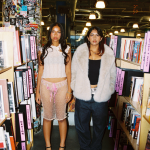The crisis of 2008 drastically changed the fashion industry. From an economic point of view, large luxury conglomerates and fast fashion brands have crushed medium and small players. From a cultural point of view, however, the entry of Generation Z into the market has overturned the values underlying the concept of luxury, inaugurating a season of mixing between high end and street fashion - a new system of values whose aesthetic has been the absolute fulcrum.
This change of priority in the west has been accompanied by the entry into the market of Chinese consumers - very different from western ones in tastes and priorities - but which has offered European luxury brands the opportunity to grow at the speed of light.
Last year, Chinese consumers accounted for 35% of the overall luxury market, according to a report by Bain & Company, while by 2025 the share of sales of luxury items to Chinese customers is expected to rise to 50% . This data underlines how even the geopolitics of the luxury market is about to change irreparably: the brands will have to adopt different communication and value strategies according to their reference market (China, West, India and the Middle East) with intentions of not falling into political contradictions and values. At the same time, brands will increasingly take on the role of interlocutors on global issues such as climate change and supply chain organization. For example, many brands have already protested against commercial reprisals between China and the USA.
According to analysts and experts, the western consumer of the post-Covid 19 world will not be impacted by revenge spending but will become more attentive both economically and in terms of values.
























































